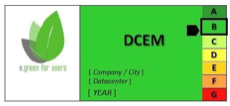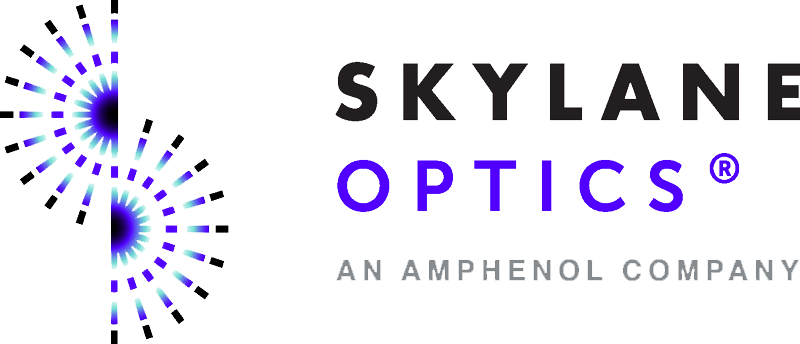Did you know that? Skylane Optics has been an official member of the eG4U for over 4 years!

Want to learn more about our activities within the eG4U?
eG4U www.eG4U.org, created in December 2015, is a European NGO (non-governmental organisation) of ICT (*) private and public Users (e.g. enterprises, urban areas/cities, rural areas, customers of the ICT providers) dedicated to enforce at European level the environmental, economic and societal sustainability of ICTs, in particular in the management and monitoring of energy consumption, CO2 and carbon emissions of ICTs and the monitoring of ICT and electronic waste, throughout the whole life cycle od ICT resource.
eG4U is developing and proposing tools using European standards based on monitoring of sustainable ICT performances.
eG4U’s main activity is to support its members to share best practises and to use standardised key performance indicators (KPIs) for facilitating benchmark among eG4U members. An important KPI, measuring energy efficiency, is the DCEM (Data processing and Communication Energy Management) standardised by ETSI, the European Telecommunications Standards Institute.

In eG4U, ICT providers and related service ones are only Associated Members who support the European NGO in compliance with eG4U ethical charter. They cannot occupy official positions, nor have voting rights (only Active Members). (*) ICT: Information & communication technologies.
In this current European and international context, users of the ICT sector have been invited to develop a framework for measuring its energy and environmental performance and for setting energy efficiency targets:
- In 2008, further to publication of the European Codes of conduct referring to data centre energy consumption, ETSI ATTM standardisation committee (Access, Transmission Terminal & Multiplexing) issued the first technical specifications (TS) on energy management efficiency in broadband networks and ICT sites, data centres included.
- In 2010 the EC published a specific mandate, European Mandate M/462, dedicated to ICT sustainability in order to issue several European Norms (ENs) defining rules and tools to improve and monitor ICT sustainability efficiency. This will be finished by Q2 2018
- In 2013, in collaboration with CRIP association & CTO Alliance, the ICT user group ETSI ISG OEU (*) (including Airbus, Orange, PSA Peugeot-Citroën, Société Générale and Thales) defined a single and global key performance indicator (KPI): the Data processing and Communication Energy Management indicator (DCEM).

Support to regulation compliance
In a near future, organisations (public or private) will have to be compliant with the regulation. eG4U objective is to help its members to meet the international rules and European guidelines based on European Standards developed by the European Standard Organisations where eG4U is engaged.
Objectives of eG4U
- Defining and providing eG4U members with access to tools to monitoring ICT energy consumption, energy re-use, renewable energy use and ICT equipment waste handling or recycling, among various options;
- Informing and persuading European policy makers to support eG4U members’ objectives and interests;
- Supporting companies and public administrations to comply with new regulations for measuring and monitoring energy effectiveness and waste for ICT sites & networks including also support to certification process;
- Providing eG4U members access to user best practices and valuable sources of information on ICT energy management defined by highly-skilled experts;
- And promoting eG4U member’s engagement in their environmental and social responsibility policy (e.g. organization of conferences, workshops…).
Achievements of eG4U
Global Indicator for ICT sites (e.g. Data Centres)
eG4U cooperated with ETSI ISG OEU (ICT Users group) to create DCEM Data processing and Communication Energy Management KPI (ref. ETSI GS OEU 001 V2.1.1 2014-12). This key performance indicator is targeting energy performance in the ICT domain. It is a single operational global KPI defined by ICT users for ICT sites. It can be mainly used for certification like ISO 50.001 and ISO14.001. eG4U provides its members with access to the web platform to monitor the performance of computer sites and their labeling according to the DCEM indicator.

Key Performance Indicators for Green Smart Cities
The standard ETSI TS 103 463 describes the selection of indicators for assessing indicators on city level. Starting from the definition of a smart city, indicators have been selected that can function as Key Performance Indicators for tracking the progress towards city objectives. The indicators for smart cities focus on monitoring the evolution of a city towards an even smarter city. The time component -“development over the years”- is an important feature. The city indicators may be used to show to what extent overall policy goals have been reached, or are within reach. With a starting point in the smart city definition, and taking into account the wishes of cities and citizens with regard to smart city indicators, the indicators are arranged in an extended triple bottom line sustainability framework, including the themes people, planet, prosperity, governance and propagation, and completed with specific smart city indicators. Under the main themes subthemes conforming to major policy ambitions have been identified. Under these subthemes in total 73 city indicators have been selected. The selection has been based on an inventory of 43 existing indicator frameworks for cities indicators. The majority of the indicators in the ICT user selection have been derived from existing indicator frameworks. New indicators have been suggested to fill gaps in existing frameworks.
Themes and Sub-themes of Green Smart Cities KPIs

Want to learn more about eG4U? Visit their website : https://www.eg4u.org/



